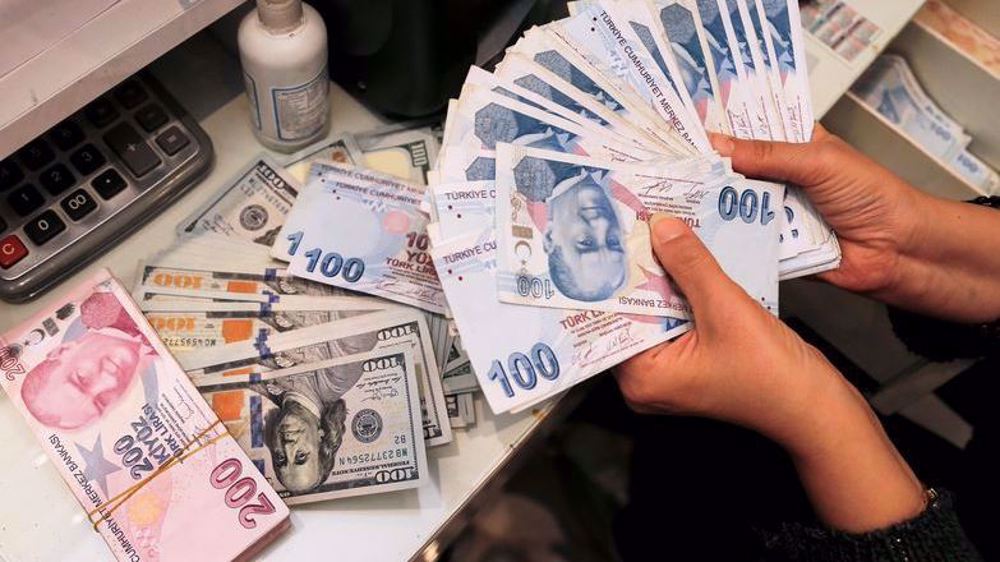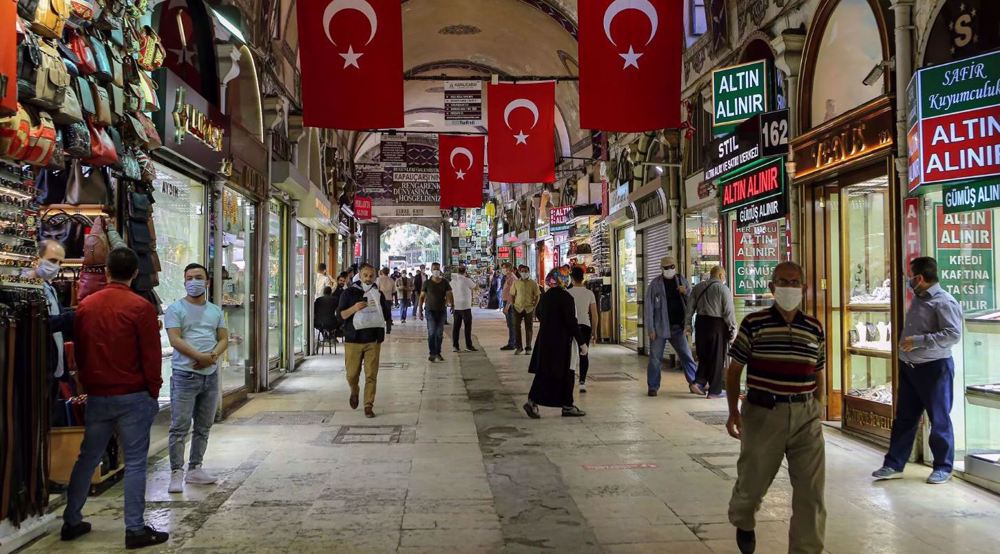
In its statement, the bank's monetary policy committee made clear that Thursday’s move was only the start of a process aimed at bringing Turkey's annual inflation rate of nearly 40 percent to single figures "as soon as possible."
"Monetary tightening will be further strengthened as much as needed in a timely and gradual manner until a significant improvement in the inflation outlook is achieved."
Turkey's Finance Minister Mehmet Simsek said in a Twitter post that a return to a "free exchange regime... will provide a very serious flow capital to Turkey".
"This will make financing investments and production much easier, and will ensure that the Turkish lira regains stability and becomes a reliable currency," he added.
But the lira still lost four percent of its value against the dollar due to investor disappointment that the bank had decided to pursue a more gradual rate-hiking course. The lira has lost an additional 18 percent against the dollar since the May 28 election runoff.
Although the increase almost doubles Turkey's policy rate to 15%, it is far less than many economists had forecast. Some analysts criticized the central bank’s move as not going far enough, however.
Financial experts say new central bank chief Hafize Gaye Erkan, who was only recruited from the US this month in the wake of Erdogan's re-election as president, wanted to avoid suffering the fate of past governors whom the president had fired for quickly raising rates.
Her decision marks the first rise in interest rates since December 2020, after a turbulent period in which three central bank governors were fired in less than two years.
Fitch Ratings said it expected the benchmark rate to reach 25 percent by the end of the year.
Turkey's president has until now insisted on keeping interest rates down. Inflation is almost 40% and Turks are in the grip of a cost-of-living crisis.
Erdogan still defends his market-defying idea that high-interest rates contribute to rising consumer prices. The Turkish leader pushed the central bank to start slashing interest rates two years ago.
Turkey's inflation rate remains stubbornly high and its central bank's reserves have fallen to critically low levels after it spent billions of dollars trying to prop up the lira.
The annual inflation rate reached 85 percent late last year and the central bank burned through most of its reserves trying to prop up the lira.
Turkey's economy grew dramatically in the early years of President Erdogan's leadership. But in the past five years, the Turkish currency has lost more than 80% of its value and foreign investment has plummeted. Turks are now trying to move foreign cash out of local banks.
Erdogan has been in power in Turkey for more than 20 years. He defeated his opposition rival last month in elections.
During the election campaign, he maintained his mantra that interest rates would stay low as long as he was in power. The opposition promised to reverse his focus on low-interest rates.
And yet within days of his re-election, he signaled a change.



No comments:
Post a Comment